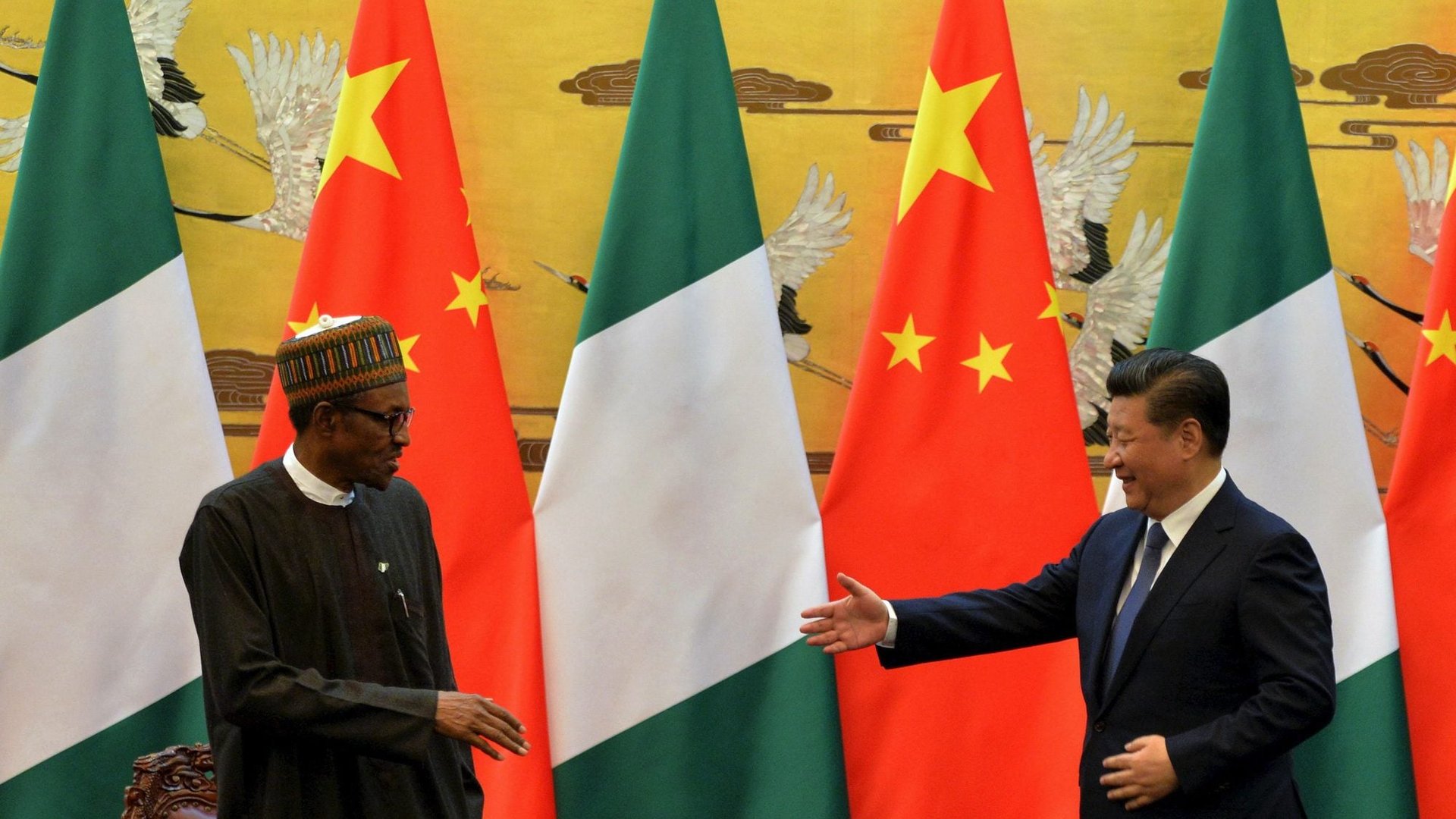After getting a $40 billion pledge from China, Nigeria ordered Taiwan’s unofficial embassy to move out
Nigeria has ordered Taiwan to move its unofficial embassy, a trade mission, out of the capital of Abuja, another sign that an unofficial diplomatic truce between China and Taiwan has ended after eight years.


Nigeria has ordered Taiwan to move its unofficial embassy, a trade mission, out of the capital of Abuja, another sign that an unofficial diplomatic truce between China and Taiwan has ended after eight years.
Nigeria said that Taiwan, which Beijing maintains is a renegade province of China, would stop enjoying privileges granted to sovereign countries. Nigeria has never established official diplomatic ties with Taiwan. “We recognize the People’s Republic of China, the one-China Policy,” Nigeria’s foreign affairs minister Geoffrey Onyeama said on Jan. 11, after a meeting with China’s foreign minister Wang Yi. Onyeama was referring to the doctrine that only one China exists and that is the one represented by the Chinese communist party in Beijing.
In response, Taiwan’s foreign ministry said it strongly “condemns the unreasonable, rude, and outrageous act of political hype carried out by the Nigerian government in complying with mainland China’s political goals.” The ministry said it would be sending an envoy to deal with the issue.
Over the past year, especially following Taiwan’s election of the pro-independence politician Tsai Ing-wen, a diplomatic rivalry between China and Taiwan has begun to re-emerge on the African continent. China and Taiwan jockeyed for formal recognition from African countries during the Cold War and after, using aid, development projects, and other incentives, until an unofficial truce was called in 2008. Beijing and Taipei would no longer try to poach each other’s allies.
Then, last year Gambia resumed ties with China, after severing its diplomatic relations with Taiwan. China was also involved in Kenyan authorities’ decision to extradite a group Taiwanese, tried and acquitted of cybercrime charges in Nairobi, to China instead of Taiwan. That was despite an agreement between Beijing and Taipei in 2011 not to extradite each other’s citizens.
In late December, the African island nation of Sao Tome and Principe rescinded official recognition of Taiwan, leaving Taipei with only two diplomatic partners on the continent, Swaziland and Burkina Faso, and 21 in the world. Zambia, which already recognizes Beijing, also reiterated its allegiance to the One-China policy during a visit from China’s foreign minister this week.
Nigeria’s latest move marks the beginning of another stage in this renewed rivalry: China may no longer be content to just block diplomatic recognition of Taiwan. Beijing wants to limit Taiwan’s international space, even through unofficial channels like trade missions. Despite its dwindling number of diplomatic partners, Taiwan has been able to maintain economic and cultural ties with trade missions and cultural offices in countries that don’t recognize Taipei.
Now, Nigeria has ordered Taiwan to scale down its trade mission—which manages consular affairs as well as events like trade delegations, explainers on Taiwan’s fisheries or tech and telecom industries, and art competitions—and move the office to Lagos where it will have less visibility. The trade mission, established in 1991, has supported Taiwanese investors and industrialists who have been manufacturing in Nigeria.
“If China is planning to demand greater restrictions on trade offices, that should be very troubling to Taiwan,” says Timothy Rich, a professor of political science at Western Kentucky University, who has studied Taiwan’s presence in Africa. Other countries may take from Nigeria’s example and decide not to pursue similar trade ties with Taiwan. “Unofficial relations, assisted in large part by these trade offices, are the true lifelines for Taiwan.”
Taiwan has pledged to consolidate its alliances around the world, but it has little economic leverage compared to China. Taiwan-Nigeria trade, in commodities like natural gas, industrial equipment, seafood, and other food products, was just $800 million last year, a fraction of the $6.46 billion in trade between Nigeria and China for just half of 2016.
Checkbook diplomacy, China’s and Taiwan’s main means of competition before the truce was established, may be back on the table. Before Nigeria made its announcement regarding Taiwan’s trade mission, China’s foreign minister Wang promised $40 billion in investments and projects for Nigeria.